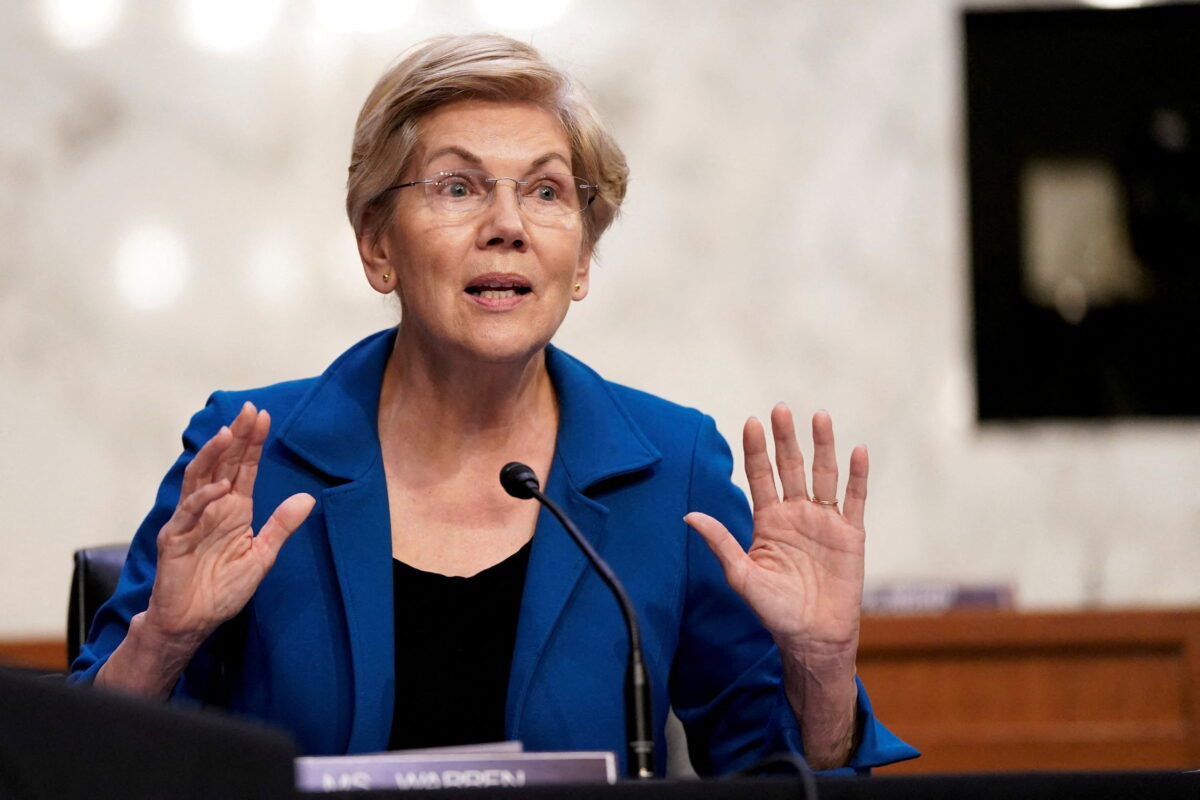

The senator accused the chief inspector of inaction despite finding Powell’s actions to be ‘unambiguously inconsistent’ with Fed rules
Sen. Elizabeth Warren (D-Mass.) blamed Federal Reserve Inspector General (IG) Mark Bialek for a lack of “competent oversight” during a Wednesday hearing while discussing the issue of potential insider trading by Fed officials.
During a Senate Banking Subcommittee on Economic Policy hearing, Warren questioned Bialek about suspicious trades involving Federal Reserve Chair Jerome Powell and former Vice Chair Richard Clarida that occurred a few years back. She pointed out that Powell and Clarida’s actions were not in compliance with Fed rules but there has been no corrective or disciplinary action. In July 2022, the IG cleared Powell and Clarida, insisting the duo did not make any improper trades while at their posts.
Bialek admitted that the investigative report lacks the detailed analysis that would close the “perceived gaps” Warren has alluded to. “But it was intentional while we pursue these other closely related and ongoing ethics investigations” of the Fed officials, he said.
Warren reminded Bialek that it has been a year and a half since these matters were being investigated. “This is not strong oversight. In fact, it is not even competent oversight.”
“It looks like, to anyone in the public, that you gave your boss a free pass,” Warren said. “And that’s just not gonna cut it here. And even today, a year and a half later, the Fed continues to stonewall Congress, stonewall the public on the underlying information about these trades. This is not acceptable. And this is why we are pushing for an independent IG.”
Warren talked about the four-page report Bialek released last year regarding his investigation of key Fed board members. The investigation found that Clarida failed to report several trades in 2019 and 2020.
It also identified trades involving Powell’s family trust that were made during a blackout period for the Federal Open Market Committee, the Fed’s monetary policy-making body. These were “trades that should not have been made at those times under the Fed’s rules,” she said.
“So, the rules say ‘no trading during the blackout period,’ But Powell’s trust did exactly that. The rules say Fed Governors must disclose all trades in a timely fashion. Mr. Clarida clearly did not. And yet your investigation, I’m going to quote you here, ‘did not find evidence’ that your boss Chair Powell and Mr. Clarida ‘violated the Fed’s rules.’ That finding just makes no sense to me.”
The actions of Powell and Clarida were “unambiguously inconsistent with the Fed’s rules,” Warren said, quoting Bialek’s investigation. Yet “you recommended no disciplinary action, no corrective action.”
During his time at the Fed, Clarida omitted four trades from his disclosure, one from 2019 and three from 2020. Clarida then filed amended forms which revealed that he sold at least $1 million worth of shares in a U.S. stock fund on Feb. 24, 2020, which he subsequently repurchased three days later on Feb. 27.
On Feb. 28, 2020, Powell announced that the COVID-19 pandemic posed “evolving risks” to U.S. economic activity. The IG report on the matter concluded that Clarida’s trade did not violate any rules.
Powell’s family trust was found to have conducted five trades on Dec. 11, 2019, which happened around the same time as a Fed policy-making meeting. During this time, senior officials are not supposed to trade.
The IG report concluded that the trades were carried out by a financial adviser and that neither Powell nor his wife were aware of these trades.
“We did not find evidence to substantiate the allegations that former Vice Chair Clarida or you violated laws, rules, regulations, or policies related to trading activities as investigated by our office,” Bialek said in a July 11 letter to Powell.
Bialek’s decision on potential insider trading attracted widespread criticism. Dennis Kelleher, the chief executive of Better Markets, a nonprofit watchdog group that advocates for stronger financial regulation, called the IG report “very narrow” and “not credible.”
“A person like the Chair asking a subordinate like the IG to investigate his boss is simply not credible, particularly, where, as here, the boss has already repeatedly stated publicly that no laws or rules were broken,” he said in a press release.
“An after-the-fact investigation by the subordinate concluding that the boss’ prior public statements were accurate is not a credible investigation.”
Meanwhile, Warren and Senator Rick Scott (R-Fla.) introduced bipartisan legislation in March that seeks to establish independent IG oversight of the Federal Reserve.
“It’s outrageous that the Federal Reserve, the world’s largest and most powerful central bank, does not have a truly independent Inspector General to investigate it—an independent authority to fight for the transparency and accountability our citizens need,” Scott said, according to a March 22 press release.
“Our legislation fixes that by establishing a presidentially-appointed, Senate-confirmed inspector general at the Fed, like every other major government agency.”




Discount Applied Successfully!
Your savings have been added to the cart.